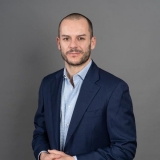How Ukrainian communities build partnerships with European ones even during the war
Before the full-scale invasion, Ukrainian communities planned have modernization, protect the environment, develop tourism and local business, and for this, they established relations with European municipalities. Under the conditions of a full-scale invasion and reconstruction of war-torn cities, such a partnership acquires new meanings and perspectives.
The "Bridges of Trust" project establishes relations among Ukrainian municipalities that need support, but do not have experience in international cooperation, with municipalities in the EU that are motivated and ready to help. 10 Ukrainian communities and 10 communities of the EU countries participated in the initiative for more than a year. The project is implemented by the Council of European Municipalities and Regions (CEMR) and PLATFORMA with the support of "U-LEAD with Europe".
Despite different languages and different realities of development, the Ukrainian and European communities found a lot in common and quickly became friends. It turned out that the challenges in most communities are the same, and this is also because of the precise selection of municipalities. For instance, the Ukmergė district of Lithuania was paired with the Korosten community in Zhytomyr region – both municipalities indicated similar areas of cooperation. For both communities, the key sector of the economy is wood processing, they share experience in energy efficiency and investment attraction. For Polianytsia community from Ivano-Frankivsk region was paired with the Polish Polanica-Zdrój – both settlements have not only the same names, but also geographical features, population and developed tourism.
Discussions about how to reorient the Bridges of Trust project to the new realities started almost immediately after the start of a full-scale invasion. Unfortunately, two of the partner towns of the project – Kakhovka and Genichesk – are temporary occupied. In the first few weeks, the European communities provided humanitarian aid to their Ukrainian partners: food, clothing, medication, sleeping bags for territorial defense units. However, in the perspective of the future reconstruction of war-affected settlements, such cooperation has much greater potential.
The main challenge is the short term and long term needs of Ukrainian municipalities. They go outside the bound of possibility of any individual organization or any EU member state. That is why the partners of Ukraine should coordinate their knowledge and resources.
However, the Ukrainians must decide on their future. Many settlements have already prepared and are implementing reconstruction plans with the help of the Association of Cities of Ukraine. European integration and EU legislation provide certain guidelines for this work, which is especially relevant today, when Ukraine is officially a candidate country.
Under the sufficient funding from the international organizations, the Ukrainian local self-governments will be able to attract the best professsionals and the most modern technologies in energy efficiency, environmental protection, digitalization, urban planning and development. This will lead not only to the restoration of what has been destroyed since the beginning of the war but will make Ukraine better, greener and more sustainable in the future. This national project for reconstruction, based on farsighted creative ideas, will create new jobs and become the best motivation for millions of the temporarily displaced Ukrainians to return home.
I was in Ukraine in June and the consequences of crimes, that I saw there, cannot be forgotten. It leaves a mark on you. However, during my short trip, I also experienced incredible leadership and resilience. Mayors, heads of districts, local activists, volunteers in Ukraine continue to heroically serve their people in the most difficult circumstances. We can all learn a lot from them.
Community partnership was an important stimulus for the reconstruction of Europe after the Second World War. Today, such a partnership can and should help Ukraine to recover and to become a full member of the European Union family.
Fabrizio Rossi, Secretary General of the Council of European Municipalities and Regions.






